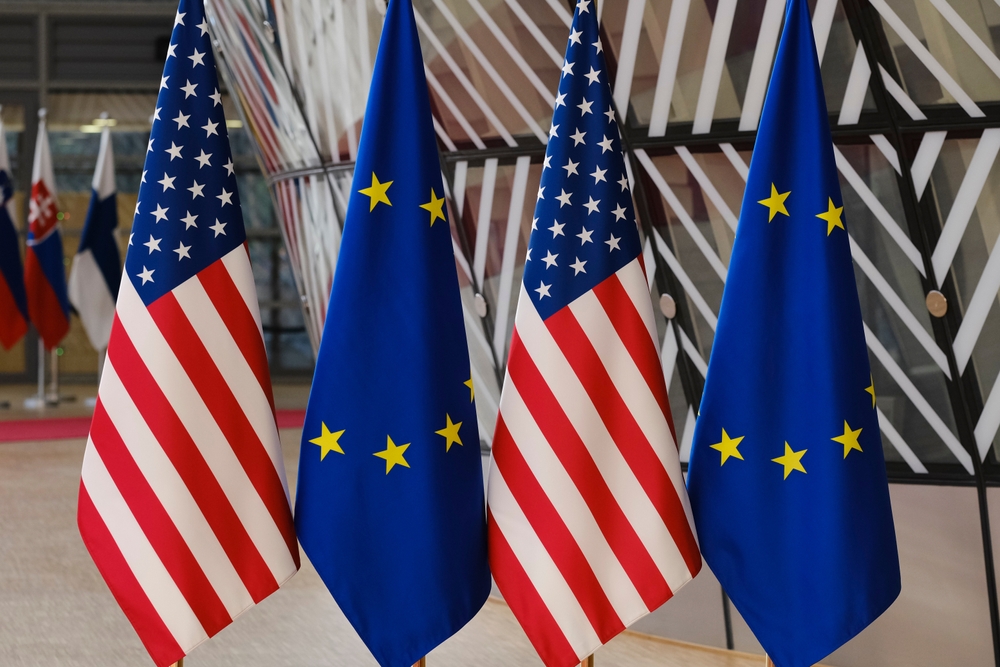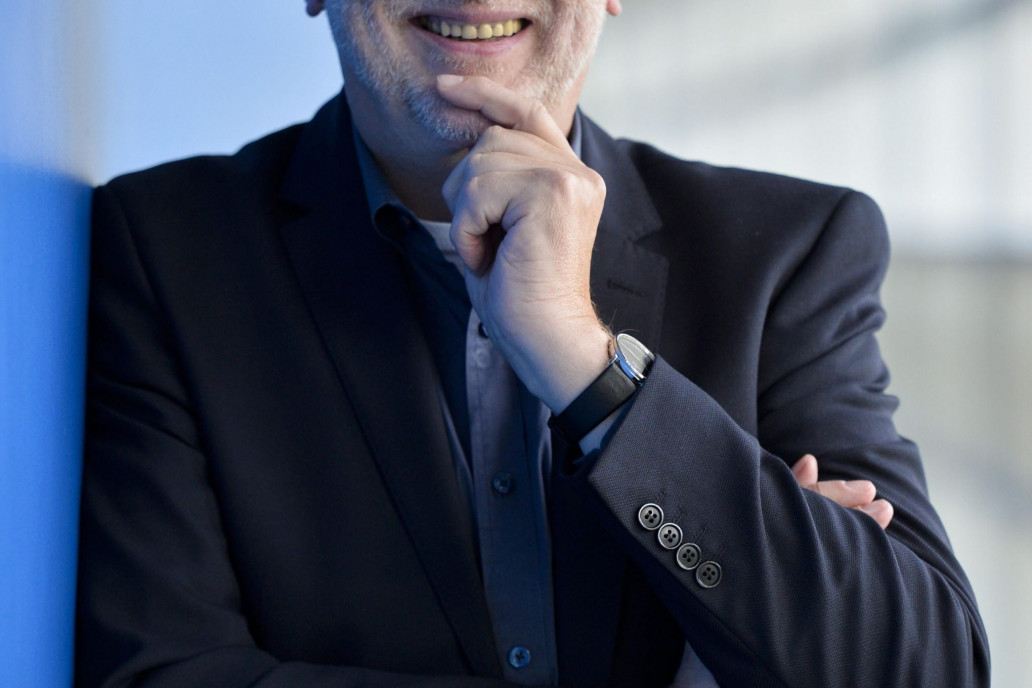Gerda Hasselfeldt, Federal Minister for Regional Planning, Building and Urban Development from 1989 to 1991 and Federal Minister of Health from 1991 to 1992. From 2005 to 2011 she was Vice-President of the German Bundestag, and from March 2011 to September 2017 she was Chairwoman of the CSU regional group. On 1 December 2017 she was elected President of the German Red Cross (GRC) by the GRC Federal Assembly. Since 2024 she is also Chairwoman of the ZDF Television Council.
You have been active in the Bundestag and the federal government for a long time, primarily in the area of finance. What are the reasons for Germany’s poor economic performance in recent years? What factors have played a role?
We should not paint the situation as worse than it is. Of course, economic development in recent years has not been as good as hoped. Among other things, the coronavirus pandemic and the armed conflict in Ukraine have left their mark. It is now important that we make the right adjustments to get the economy back on track. I believe, for example, that the flood of bureaucratic regulations in all sectors is a major obstacle. Some of these regulations are completely unnecessary and originate from European Union directives, which are sometimes implemented even more strictly in Germany. However, these regulations cannot be blamed solely on the EU. It has been a gradual process over recent years to regulate and control more and more. This has now been recognised and is to be dismantled. The establishment of a new ministry responsible, among other things, for reducing bureaucracy is an important step. The tax aspect may also play a role in some negative economic developments. We have a high corporate tax burden, which is also being adjusted. The government has therefore recognised both the regulations and the tax burden as problems. Another point is certainly the necessary or lacking infrastructure, especially the railways. There is a huge backlog in this area, which is now being addressed. For years, there has been far too little investment.
You mentioned infrastructure. In its last session, the previous Bundestag passed a financial package aimed, among other things, at strengthening infrastructure in Germany and environmental protection. Does that mean there has been a problem with infrastructure for a long time? Was this an issue that had been around for a long time and was ignored for a while, or would you even say that it was ignored by politicians?
Yes, we have to admit that this area has been neglected for far too long. Incidentally, this was not just a question of money or political will; in many cases, excessive bureaucratic regulations and planning requirements prevented the necessary measures from being taken. This applies to both housing construction and the expansion of transport routes. Here, too, efforts are being made to speed up these planning processes as part of the drive to reduce bureaucracy and thus press ahead with infrastructure development.
Do you think this financial package is the right instrument to bring about change?
I believe so. Infrastructure expansion is absolutely essential because it has been neglected in recent years. This effort is made possible by the amendments to the Basic Law in the area of debt.
Speaking of the Basic Law and constitutional law. After this latest decision in the last session of the old Bundestag, there was a constitutional debate: Was the Bundestag actually entitled to make such a decision that will have such a major impact on the next, perhaps at least two, legislative periods? And that despite the fact that the political legitimacy of that Bundestag had already been somewhat lost? Some parties are already considering referring this question to the Constitutional Court. What is your opinion on this?
First of all, I am not a lawyer. Ultimately, I believe it was the right thing to do, even if there is undoubtedly room for a debate. At the time of the vote, the Bundestag was still in office and there was agreement that it could decide on this enormously important matter. A majority was needed, which would probably not have been achieved in the new Bundestag, so it was understandable that this course of action was chosen.
You are President of the German Red Cross. That has a lot to do with humanity and human rights. At present, there is a tendency in many countries, in Europe, in Italy and in Germany, to enforce strict immigration policies – apart from specific political parties. Is such a political orientation compatible with the principle of protecting human dignity, with the principle of humanity?
That is indeed a point of discussion that we have again and again, including between the German Red Cross and political leaders from all parties. We do not always come to the same conclusion, for example when it comes to the issue of family reunification. In our view, the family is a very important core element for personal development and social peace. The political decision on this issue with regard to refugees is different, and we have to accept that. However, it is also clear that the burden on local authorities caused by large numbers of migrants is an issue in Germany. Some of our local authorities are at breaking point or even overwhelmed when it comes to accommodating and caring for refugees. Nevertheless, we must ensure that migrants are housed in humane conditions, that they have opportunities to integrate and that they are well cared for, supported and advised. We have achieved some improvements, particularly in migration counselling, where we are active and which is funded by the state. But every year, it is a point of negotiation when it comes to how much money will be made available for this. At this point, in my view, after all the weighing up and discussion, we must say: we bear joint responsibility for the people who come to us, and we must live up to this responsibility.
At the moment, however, many governments in Europe seem to understand the issue of migration only in terms of internal security and regulate it accordingly. Human dignity hardly plays a role in this. Meanwhile, Red Cross workers are often in mortal danger themselves when they are deployed in war zones such as Ukraine, Gaza or elsewhere in the world. They are no longer considered neutral: according to some allegations, there have been cases of medical personnel being deliberately killed. How do you view this development?
Yes, it is unfortunately the case that, especially in armed conflicts, humanitarian aid workers do not enjoy the protection they should have under international humanitarian law. This is particularly true for local employees of our sister organisations. Aid workers from both the Palestinian Red Crescent and Magen David Adom in Israel have been killed while on duty. There have also been such cases with the Ukrainian Red Cross, as well as in other conflict areas, such as Sudan. The German Red Cross is active in around fifty countries, not only in armed conflicts, but also after earthquakes, floods and other disasters, where the risks are different from those in armed conflicts. Extreme weather events and droughts due to serious climate change are also increasingly occurring in the context of armed conflicts, which makes the situation even more difficult for aid workers and, of course, those affected.
Can politicians or international organisations do anything about this?
The parties to the conflict are primarily responsible for ensuring the safety of aid workers. They must ensure that international humanitarian law is observed and that protective measures are also respected in the context of hostilities. Only then can impartial humanitarian organisations such as the German Red Cross provide assistance safely and in accordance with the level of need. Together with the International Committee of the Red Cross, we repeatedly emphasise the importance of international humanitarian law, i.e. that rules also apply in armed conflicts. We also urge the parties to the conflict to comply with these rules in direct talks, but ultimately, as an aid organisation, this is precisely our role. Political actors such as national governments have more leverage and can exert pressure. But ultimately, implementation is in the hands of the parties to the conflict. They must ensure safe access to those affected by the conflict.
Finally, one more question: The last legislative period in Germany was very exciting, especially towards the end. Will the legislative period that has just begun be calmer or more turbulent? What do you expect?
These are not easy times, and the tasks ahead are enormous. The situation is difficult both domestically and in foreign policy. Everyone in positions of responsibility is aware of this. We are therefore facing challenges and there is great pressure to act. I have the impression that this coalition is working better together, and I hope this continues. The work is made easier by the fact that there are two parties in the coalition instead of three, and they are used to finding compromises even when they have different opinions.
The motto seems to be: „They can’t afford to fail.“
I am sure that all those responsible in politics have recognised the seriousness of the situation.
The author would like to thank the Hanns Seidel Stiftung in Rome for its kind cooperation.
Copyright Header Picture: DRK, Henning Schacht
Könnte Sie auch interessieren
2. Februar 2026


